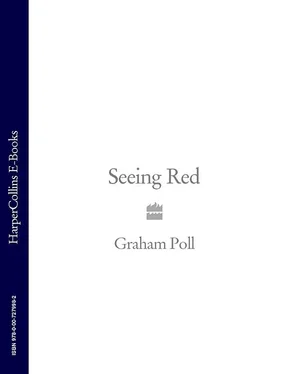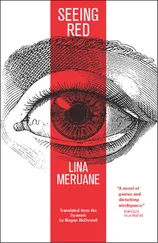This time the clear and utterly unfounded allegation was that I had changed my story and had produced a deliberately falsified account. The impression the England captain was trying to create was that he should not have been sent off. There had only been a minor collision and, on thinking about it later, the referee had changed his story to blame a different incident.
If Terry genuinely believed that is what happened he was completely mistaken. I had not changed my story at all. On the field I had not given Terry any explanation about why I was sending him off. That was why he came to ask me about it afterwards in my changing room. The account I gave him in the changing room was the only version of events I described for him. It was the only version there was, because it was the truth.
Perhaps Cole and Terry had simply forgotten that all the match officials were wearing microphones and earpieces throughout the game. Doh! Mine was an ‘open mike’. The two assistants and the fourth official had heard everything I had said. They had not heard me say that Chelsea needed to be taught a lesson. They had not heard me tell Terry to ‘F*** off’. They had not heard me say to Terry on the field why I was sending him off. They did not hear any of those things because I had not said them.
There were TV cameras as well as the microphone, and so I was able to say, in an email to the FA about Terry’s accusation, ‘There were no words exchanged at the time of his dismissal or indeed anything from the moment he fouled his opponent, Mr King, until after the final whistle. The video of the match shows this clearly.’
I sent off my email and waited for the FA to deal with the matter. It was to prove a long and frustrating wait.
CHAPTER FOUR
I was outraged by the accusations by Cole and Terry, appalled that newspapers took them at face value and devastated that the Football Association investigated me. The biggest hurt was caused by the FA.
In fact, I don’t blame Chelsea, their manager or their players for haranguing me on the pitch or the verbal assaults off it. They were encouraged to do and say what they did because, time and time again, they had seen the FA do sweet f.a.
As far as the accusations were concerned, I knew the evidence would exonerate me. I also suspected that the Chelsea players would back down. To persevere with the allegation that I had said they needed to be taught a lesson would have alleged also that both assistant referees and the fourth official were involved in a conspiracy of lies with me.
Yet there was no word from the FA of any charges against Chelsea. The affair was still being investigated. I was still being investigated. They had the reports from four match officials they were supposed to trust. What more did their investigation need? I am not sure I can convey how vulnerable that made me feel; vulnerable and betrayed. How was I supposed to command the respect of players in other matches if allegations about my integrity were not rebutted? If the FA doubted me, how was I supposed to repair my fractured credibility?
I asked to be taken off the Carling Cup tie between Everton and Arsenal on the Wednesday because I felt so downcast and devalued. Looking back, missing that game would have sent out the wrong message. It would have created the impression that I had been suspended because of the Chelsea accusations. So it was perhaps fortunate that I was told that I had to go ahead and referee the fixture at Everton. I would have to tough it out. Perhaps it would be a nice, incident-free match. Not a chance.
In the twentieth minute Everton appealed for a penalty when Andy Johnson was tackled. It looked like a fair challenge to me, so I span away from the incident to follow play. I was aware that James McFadden was chasing after me but I was concentrating on the game. Then, as clear as anything, I heard McFadden shout, ‘You f***ing cheat!’
His team-mate, Tim Cahill, was near me and grabbed my arm. He said, ‘Don’t do it, Pollie.’ Cahill knew, McFadden knew and I knew what the Scot had said.
Whatever nonsense people say about me seeking controversy, I ask you to believe that the last thing I needed that night was more back page headlines. But McFadden had run thirty or forty yards to call me a cheat. It was not a spontaneous, heat-of-the-moment remark. Other players had heard it.
Referees hate being called a cheat. The whole foundation of refereeing is that you make honest decisions. You want to get those decisions right – you strive to get them right – but if there are mistakes, they are honest mistakes. I would have betrayed my profession if I had not sent off McFadden. So I did.
The ground erupted. It had to be a home player, didn’t it? And Everton manager David Moyes proved a major disappointment. Before the match, during my warm-up, he came over and said, ‘Don’t let them get to you, Graham. We all know you are the best referee.’ Yet after the match he staged a theatrical stunt at the media conference. He produced McFadden, who denied that he had called me a cheat. Everton’s case was that the player had said ‘f***ing shite’ rather than ‘f***ing cheat’. So that was all right then! But I know what he said.
Moyes told the assembled media, ‘Once again we have a situation where Graham Poll says a player says one thing and the player says he said something different. Who do you believe?’ That ‘once again’ comment was a reference to the Chelsea accusations.
After reviewing the match report – which included the explanation that McFadden had been dismissed for calling me a cheat – Everton decided not to appeal against the decision. So I was once again exonerated.
The assessor, Mike Reed, thought I’d had a ‘brilliant’ game. But, when I got back to my hotel, a group of Everton fans did not share that view. By then they had probably heard the Everton version of McFadden’s abuse, so they spat out some expletives of their own at me.
Next morning, when I turned on my mobile, there was a text message and a voicemail from Keith Hackett, manager of the referees’ Select Group. He was in Switzerland at a UEFA meeting. He had instructed me to call him urgently ‘about a financial irregularity regarding car sponsorship’.
A what? I could not believe it. I phoned UEFA and demanded that they dragged Keith out of his meeting. With mounting paranoia, I shouted at my boss. I yelled, ‘What the hell is going on, Keith? Is this being pushed out by a club? Where is all this coming from?’ He asked me if I had a sponsored car. I said, ‘Why do you need to ask that? I have my own car and my bank statement can show that I pay for that car every month.’
He said, ‘The Premier League press office have been phoned by a paper. The paper say they have a copy of an agreement showing that you have a sponsored car …’
I replied, ‘Point one: I don’t have a sponsored car. Point two: is it wrong if I did? Dermot Gallagher has one with the sponsor’s name across the side. Keith, somebody is trying to do me, turn me over.’
My boss went back to his meeting and I made a mental tally of recent events. I had been maligned by two Chelsea players, one of whom was the England captain. I had sent off an Everton player for questioning my integrity. His manager had questioned my veracity. I had been abused by supporters. I had been accused of some sort of financial impropriety. Oh, and I had been betrayed by the Football Association. All in just under four days.
At breakfast I read a report of the Everton game in The Guardian . The writer said that if I was offended by being called a cheat, I needed to get out more. I did not read any other reports but I now know they were scathing. The Mirror’s headline was ‘POLL POTTY’ and, in a later edition of The Guardian , Dominic Fifield came to this considered appraisal of me:
Читать дальше












